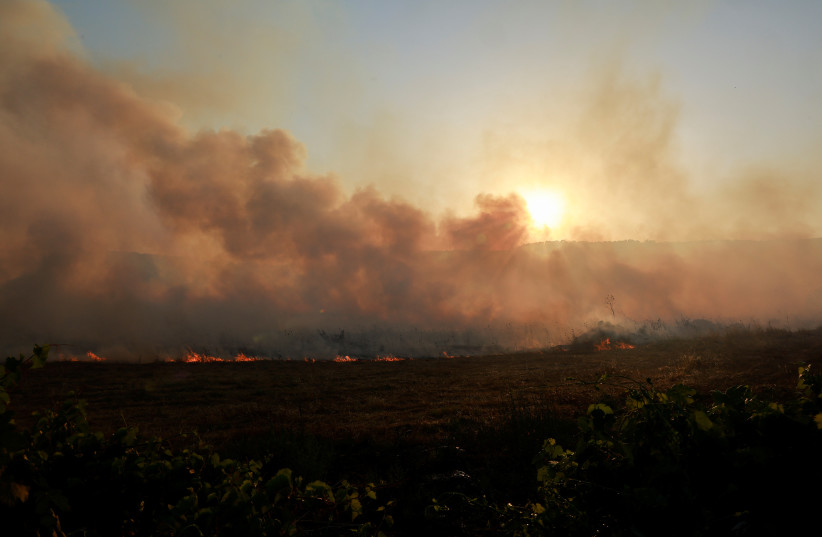The next months in northern Israel will be crucial for its security. However, a trip to the area over several days this week revealed the challenges that Israel is facing. I’ve been to northern
Israel many times since the war with Hamas began on October 7; it was always the second front in the war, the one Israel was attempting to prevent from heating up.
Now, it is in focus because of Hezbollah’s escalations, and also because of the recent fires that have swept the region due to aerial attacks by Hezbollah. The need for Israel to solve this problem is growing incrementally. Evacuating 80,000 people has become a serious challenge, not only for the communities involved but also because of the policy decision. Israel wants to return the residents, but they won’t return until Hezbollah is removed from the border.
I drove to the North on Sunday early in the morning, reaching the areas near the Hula Valley just as the sun rose; it was beautiful. The farms were green and what once had been the swamps of the valley in the 19th century were now criss-crossed with fields.
Hezbollah often attacks some of these areas, either using unguided rockets or precision drones. The road to Kiryat Shmona has become relatively deserted, with just some local traffic that is of necessity, as the road could be hit with rockets or falling shrapnel from interceptions. When I was there, at a coffee shop, there were Iron Dome interceptions overhead. Reports at the time said that a Hezbollah threat to Ramot Naftali had triggered the alarms and interceptors.

Visiting Kiryat Shmona
The next day, I visited both Kiryat Shmona and other communities in the Hula Valley and the Upper Galilee. Hezbollah continued its attacks, wounding two members of a security team in Metulla. The presence of local security teams was clear here, and many of the men, who are in the reserves and wear their green army uniforms, make up the main element of people moving around and stopping for coffee.
This shows how much of the North has been transformed into a war zone. The feeling is not of constant war, but that war is on the horizon, lurking. People are ready, but they have also been doing this for eight months and they would like an off-ramp.
The belief among those I spoke to was that war would likely take place and that when it does, it will be very destructive. In fact, the constant warnings to the media about how the electric grid could be damaged have caused the kind of concern that leads to a real sense that war is coming. These reports also led to people acquiring generators, which the government said civilians wouldn’t need.
This is the kind of cycle people are living under, of threats, rumors, and then an attempt to downplay the concerns. Each week brings a new escalation followed by days of quiet until a new escalation heats things up.
Due to the uncertainty and lack of safety, people who run holiday cottages and are in the tourism sector in the North are forced to close their businesses. Those outside the evacuated zone have places for rent, but they warn people that “in case of a war,” the place will be closed. This routine has become a kind of short-term norm.
However, everyone assumes this can’t go on forever. The shadow of October 7 loomed large in places I drove and people I spoke to. There is a sense that October 7 was a kind of prelude to worse attacks in the North.
This may not be accurate. The kind of attacks Hezbollah has been doing showcase its capabilities to carry out precision attacks across the Galilee.
One refrain I often hear from people is that they would prefer Israel’s leaders and officials to talk less and do more. There has been a lot of rhetoric about a coming war in the North; I’ve heard this refrain for months.
Every time I drive to the North, I am surprised by the relative quiet, but also shocked by the sense that so many lives in the North have been disrupted without any real plan for the future. If Hezbollah withdraws from the border, the prospect of a future will return.
The international community has shown it cannot be relied on to help solve this war; Hezbollah is dug in via tunnels and infrastructure near the border. If there is a war, Iran could also join in, broadening it to the region. These are all possible outcomes; none of them is ideal.
